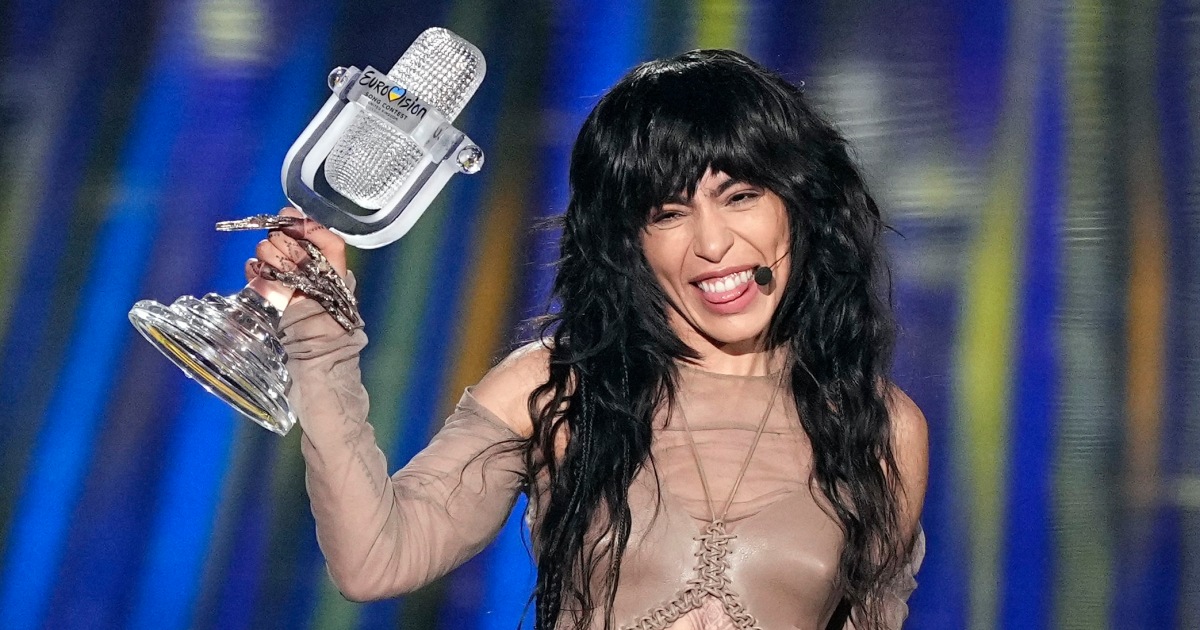LIVERPOOL, England (AP) — Swedish singer Loreen won the Eurovision Song Contest on Saturday night with her power ballad «Tattoo,» in a colorful and eclectic music competition overshadowed for the second year in a row by the war in Ukraine. .
The Stockholm diva beat out acts from 25 other countries to take the continent’s pop crown at the competition in Liverpool. Finnish singer Käärijä came second in a close battle of Nordic neighbours.
Loreen previously won Eurovision in 2012 and is only the second artist to win the award twice, after Ireland’s Johnny Logan in the 1980s.
Britain hosted Eurovision this year on behalf of Ukraine, which won last year but was unable to assume its right to hold the contest because of the war. Raid sirens sounded across Ukraine as the contest unfolded.
Under the motto «United by Music», the Eurovision final fused the soul of the English port city that gave birth to The Beatles with the spirit of war-torn Ukraine.
The sights and sounds of Ukraine permeated the show, beginning with an opening film featuring Eurovision 2022 winners Kalush Orchestra singing and dancing on the Kiev metro, to the tune performed by musicians in the UK, including Kate, Princess of Wales, shown playing the piano.
The folk-rap band themselves then appeared on the Liverpool Arena stage with a pair of gigantic hands outstretched, accompanied by massive drummers.
Contestants from the 26 finalist nations entered the arena in an Olympic-style parade of flags, accompanied by live performances from Ukrainian acts including Go A, JamalaTina Karol and Verka Serduchka, all previous Eurovision contestants.
Now in its 67th year, Eurovision bills itself as the world’s biggest music contest, a party pop Olympiad. Each competitor has three minutes to combine catchy tunes and mind blowing show in performances capable of conquering the hearts of millions of viewers.
Loreen had been the bookmakers’ favourite, winning by far the most professional jury votes in the complex Eurovision voting system. She faced a close challenge from Käärijä, who won the public vote. He’s an entertainer with the energy of an Energizer bunny and a spooky green bolero top who transitions from metal growler to sweet singer on the party anthem «Cha Cha Cha.» The infectious song garnered one of the biggest reactions from the synaglong crowd of the night.
Italian Marco Mengoni also had a huge following with “Due Vite” (Two Lives), a seductive ballad with enigmatic lyrics.
Austrian duo Teya & Salena were the first to perform with «Who the hell is Edgar?» — a wacky satirical ode to Edgar Allen Poe that also criticizes the meager royalties musicians get from streaming services.
Later, the varied tastes of the continent were exhibited: the cabaret singing of the Portuguese Mimicat; the Britney-style power pop of Poland’s Blanka; echoes of Edith Piaf de La Zarra for France; fiery ballad of the entrance to Cyprus, Andrew Lambrou.
Rock was unusually well represented this year in a contest that tends to favor upbeat pop. Australia’s Voyager evoked ’80s stadium rock on «Promise,» while Slovenia’s Joker Out, Germany’s Lord of the Lost were also crunching guitar cues.
An unconventional contender was the anti-war rock opera “Mama ŠČ!” by Croatia’s Let 3, who mock militaristic dictators amid Monty Pythonesque footage before stripping down to their boxers onstage.
Electronica duo Tvorrchi paid tribute to Ukraine’s resilience on “Heart of Steel”.
Muller, for Great Britain, drew the unenviable final performance slot of the night with his upbeat breakup anthem «I Wrote a Song». She placed next to last, but at least she avoided the humiliation of getting «null points»: zero points.

